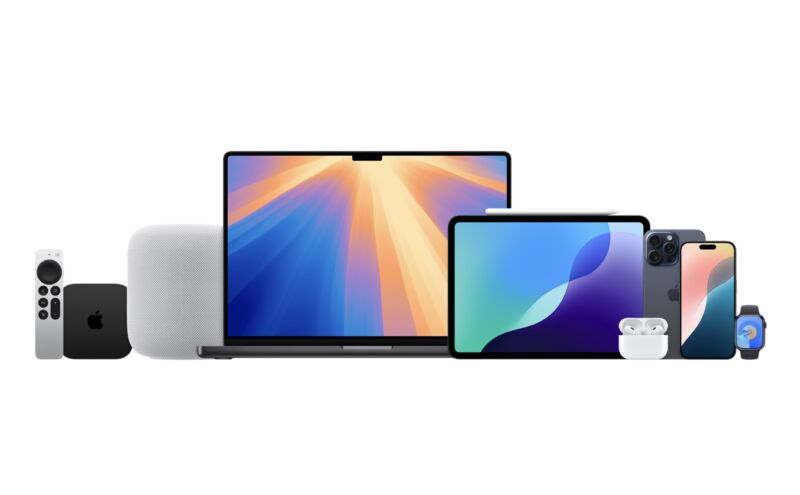
Apple
Apple plans to release the next versions of iOS, iPadOS, macOS, and watchOS to the general public on September 16, the company announced via its website following its iPhone-centric product event earlier today. We should also see updates for tvOS and the HomePod operating system on the same date.
The new releases bring a number of new features and refinements to Apple’s platforms: better texting with Android devices thanks to support for the RCS standard, iPhone Mirroring that allows you to interact with your iPhone via your Mac, more UI customization options for iPhones and iPads, and other improvements besides.
What won’t be included in these initial releases is any hint of Apple Intelligence, the batch of generative AI and machine learning features that Apple announced at its Worldwide Developers Conference in June. Apple is testing some of the Apple Intelligence features in betas of iOS 18.1, iPadOS 18.1, and macOS 15.1, updates that will be released later this fall. When Apple Intelligence does arrive, compatibility will be limited: it will require an iPhone 15 Pro or one of the just-announced iPhone 16 or 16 Pro models; an iPad Air or Pro with an M1, M2, or M4 chip; or an Apple Silicon Mac. Apple will also be withholding Apple Intelligence from devices in the EU, at least for now.
The new operating systems will run on most of the same hardware that is currently compatible with iOS 17, iPadOS 17, and macOS Sonoma, including the last few generations of Intel Macs from 2018, 2019, and 2020. But there are a handful of exceptions, like the 2018 MacBook Air and a handful of older iPads. Phones as old as 2018’s iPhone XR and XS will be able to install and run the iOS 18 update.
Apple has released multiple beta versions of each operating system since WWDC in June, and release candidate builds will likely go out to users and developers today. These will enable developers to get final versions of their apps ready for launch day. Users who want to move over to the new operating systems early can also do so—you can be relatively confident that most of the biggest bugs have been worked out over the summer betas. However, as always when installing major updates, you should ensure you have good backups of your data beforehand.

